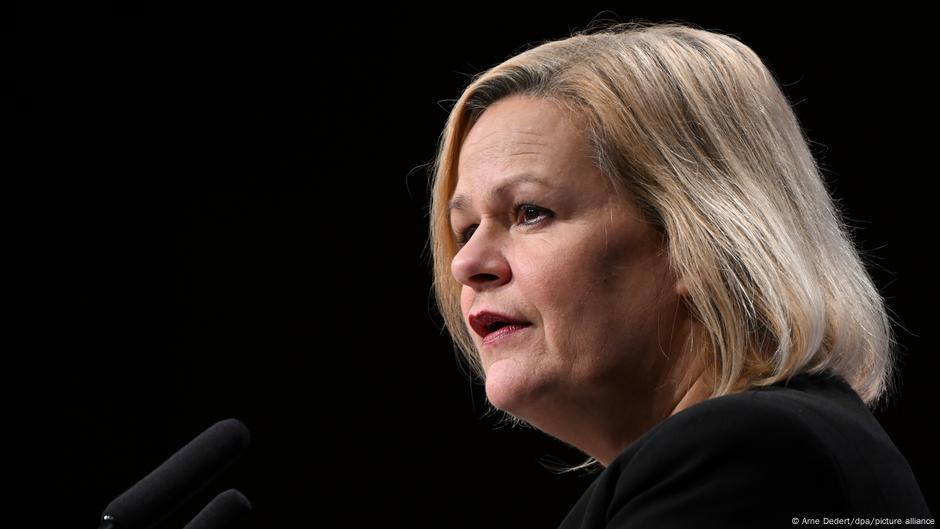Analyzing The Challenges: Why BMW And Porsche Are Facing Difficulties In China

Table of Contents
Intensifying Competition from Domestic Chinese Brands
The rise of domestic Chinese automakers is a primary factor impacting BMW and Porsche in China. Brands like BYD, Nio, and Xpeng have rapidly gained market share, leveraging advanced technologies and competitive pricing strategies to challenge established luxury players. These domestic brands are not simply offering cheaper alternatives; they are producing high-quality vehicles with innovative features that resonate with Chinese consumers.
- Increased affordability of electric vehicles (EVs) from domestic brands: Chinese EV manufacturers are producing competitive EVs at significantly lower price points than their foreign counterparts, making them accessible to a broader segment of the market.
- Superior understanding of Chinese consumer preferences: Domestic brands possess an intimate understanding of local tastes and preferences, allowing them to tailor their products and marketing campaigns more effectively.
- Stronger local dealer networks and after-sales service: Extensive dealer networks and readily available, localized after-sales service provide a seamless customer experience, a crucial factor in building brand loyalty within the Chinese market.
- Government support and subsidies favoring domestic brands: Government initiatives and subsidies aimed at promoting domestic automakers provide a significant advantage, further bolstering their competitiveness against international brands like BMW and Porsche in China.
Shifting Consumer Preferences and Demands
The Chinese automotive market is undergoing a rapid transformation, driven by evolving consumer preferences. There's a dramatic shift towards electric vehicles and technologically advanced features. Luxury is no longer solely defined by brand prestige but also by technological sophistication and personalized experiences.
- Growing demand for electric vehicles (EVs) and hybrids: The increasing awareness of environmental concerns and government incentives for EVs are driving a surge in demand, creating a competitive landscape favoring manufacturers with strong EV offerings.
- Preference for advanced driver-assistance systems (ADAS): Features like lane-keeping assist, adaptive cruise control, and automated parking are becoming highly sought-after, pushing automakers to invest heavily in advanced driver-assistance technologies.
- Focus on digital features and connectivity: Seamless smartphone integration, in-car entertainment systems, and over-the-air software updates are critical selling points for Chinese consumers.
- Desire for personalized and customized options: Consumers are increasingly seeking vehicles that reflect their individual style and preferences, demanding more customization options from manufacturers.
Economic Slowdown and Geopolitical Uncertainties
The recent economic slowdown in China has directly impacted luxury car sales, including those of BMW and Porsche. Furthermore, geopolitical tensions and trade disputes create further uncertainty within the automotive sector, affecting import costs and supply chains.
- Reduced consumer spending power due to economic uncertainty: Economic instability leads to decreased consumer confidence and reduced discretionary spending, impacting the sales of luxury goods like high-end automobiles.
- Impact of trade wars and tariffs on import costs: Trade disputes and tariffs increase the cost of importing vehicles, making foreign brands less competitive in the price-sensitive Chinese market.
- Supply chain disruptions affecting production and distribution: Geopolitical tensions and global supply chain disruptions can significantly impact the production and timely delivery of vehicles, leading to delays and lost sales.
- Uncertainty surrounding future government policies: Changes in government regulations and policies can significantly affect the automotive industry, creating uncertainty for both domestic and international players.
Challenges in Adapting to the Chinese Market
BMW and Porsche face significant challenges in adapting their strategies to the unique characteristics of the Chinese market. Cultural nuances and localized marketing strategies are crucial for success, and a failure to adapt can lead to significant market share losses.
- Difficulties in understanding and responding to local consumer preferences: A deep understanding of the specific needs and preferences of the Chinese consumer is vital, which requires extensive market research and localized product development.
- Challenges in adapting marketing and communication strategies: Marketing campaigns need to be tailored to resonate with the Chinese consumer, considering cultural sensitivities and preferred communication channels.
- Need for stronger localization efforts in product development and design: Developing vehicles specifically designed for the Chinese market, considering road conditions, climate, and consumer preferences, is critical for competitiveness.
- Importance of building stronger relationships with Chinese consumers: Fostering strong relationships with Chinese consumers through exceptional customer service and engagement is crucial for building brand loyalty.
Overcoming the Hurdles: The Future of BMW and Porsche in China
The challenges facing BMW and Porsche in China are multifaceted, encompassing intensified competition, shifting consumer preferences, economic uncertainty, and the need for greater market adaptation. To regain their market share, these brands must prioritize several key strategies. Increased investment in electric vehicles, stronger localization efforts, enhanced marketing tailored to the Chinese market, and a commitment to understanding and responding to evolving consumer demands are crucial steps. The future of BMW and Porsche in China depends on their ability to navigate these complexities and adapt to the dynamic nature of this vital market. What strategies do you believe are crucial for BMW and Porsche to navigate the complexities of the Chinese market and reclaim their position? Share your thoughts in the comments below!

Featured Posts
-
 Sigue En Vivo El Almeria Eldense Transmision De La Liga Hyper Motion
May 17, 2025
Sigue En Vivo El Almeria Eldense Transmision De La Liga Hyper Motion
May 17, 2025 -
 New York Knicks Tom Thibodeau On 37 Point Loss Lack Of Resolve
May 17, 2025
New York Knicks Tom Thibodeau On 37 Point Loss Lack Of Resolve
May 17, 2025 -
 Todays Mlb Matchup Mariners Vs Reds Predictions And Betting Tips
May 17, 2025
Todays Mlb Matchup Mariners Vs Reds Predictions And Betting Tips
May 17, 2025 -
 Prosvjednici U Teslinom Izlozbenom Prostoru U Berlinu Prijetnja Planetu
May 17, 2025
Prosvjednici U Teslinom Izlozbenom Prostoru U Berlinu Prijetnja Planetu
May 17, 2025 -
 Getting The Most For Your Money Practical Tips For Budget Conscious Shoppers
May 17, 2025
Getting The Most For Your Money Practical Tips For Budget Conscious Shoppers
May 17, 2025
